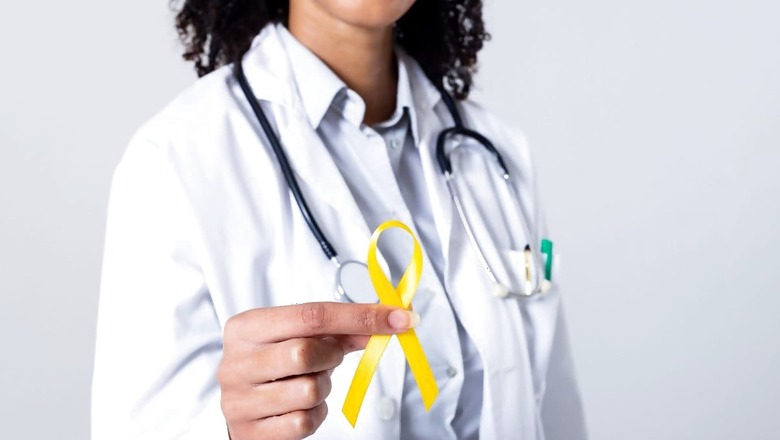
views
Sarcoma is a rare but deadly type of cancer that every woman should be aware of. It originates in the soft tissues or bones and can spread rapidly. Early detection is crucial for effective treatment. Though relatively uncommon, it poses a serious threat and requires immediate medical attention. Educating oneself about sarcoma and its symptoms can aid in early diagnosis, potentially improving the chances of successful outcomes and long-term survival.
Dr Sameer Gupta, Head Of Department of Surgical Oncology, DPU Private Super Speciality Hospital, Pune shares symptoms and signs of sarcoma in different age groups
- A lump or bump which is growing. The lump may or may not be painful.
- Gradually worsening abdominal pain
- Bleeding in vomiting or stools.
- Sarcomas in the abdomen become quite large before they become symptomatic due to pressure on adjacent organs like the intestines/Kidneys or major blood vessels.
- Unexplained weight loss
Scientists have found a few risk factors that make a person more likely to develop soft tissue sarcomas. “Radiation exposure- excessive use of CT scans. Living in areas of high radiation. Genetic causes like cancer syndromes.eg Neurofibromatosis, Li Fraumeni syndrome. Exposure to harmful chemicals like Vinyl chloride (used in making plastics) and arsenic in water have been implicated in developing these tumours,” adds Dr Gupta.
Difference between Sarcoma and a Lipoma
Sarcoma is a malignant tumour (cancerous)of the soft tissues. Lipoma is a non-cancerous swelling of the fat cells. It is usually localised, soft in consistency, 1-2 cm in size. Lipomas do not spread and are usually removed for cosmetic reasons.
Dos and Don’ts for professionals working with harmful chemicals to avoid Sarcomas:
Avoid radiation exposure. Avoid unnecessary X-rays and radiological investigation which exposes one to radiation.
Avoid exposure to chemicals like herbicides. Wash vegetables and fruits thoroughly before consumption.
If you have a family history of Sarcoma in close relatives get genetic testing done.
Any suspicious lump – visit your doctor and get it checked as soon as possible.
Stay in a clean and healthy environment and avoid pollution.




















Comments
0 comment